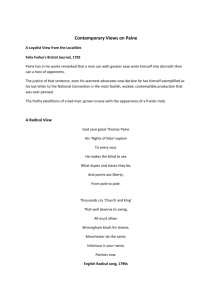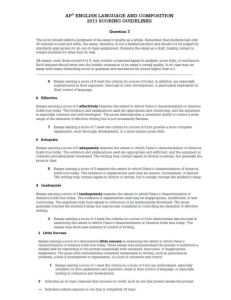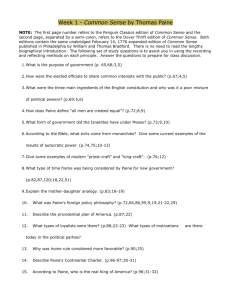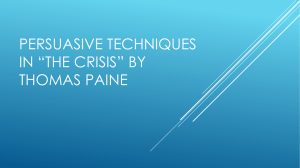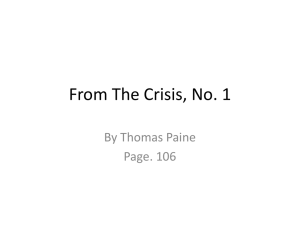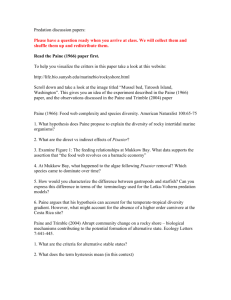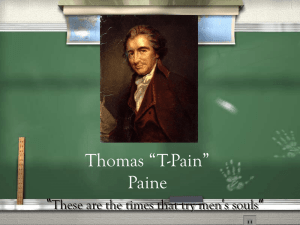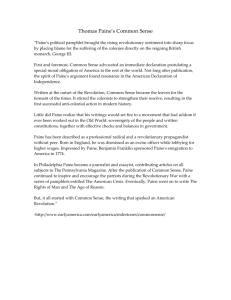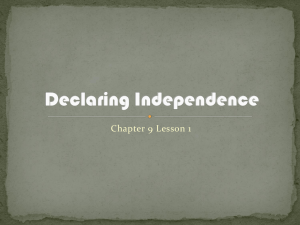Thomas Paine and The Crisis #1
advertisement
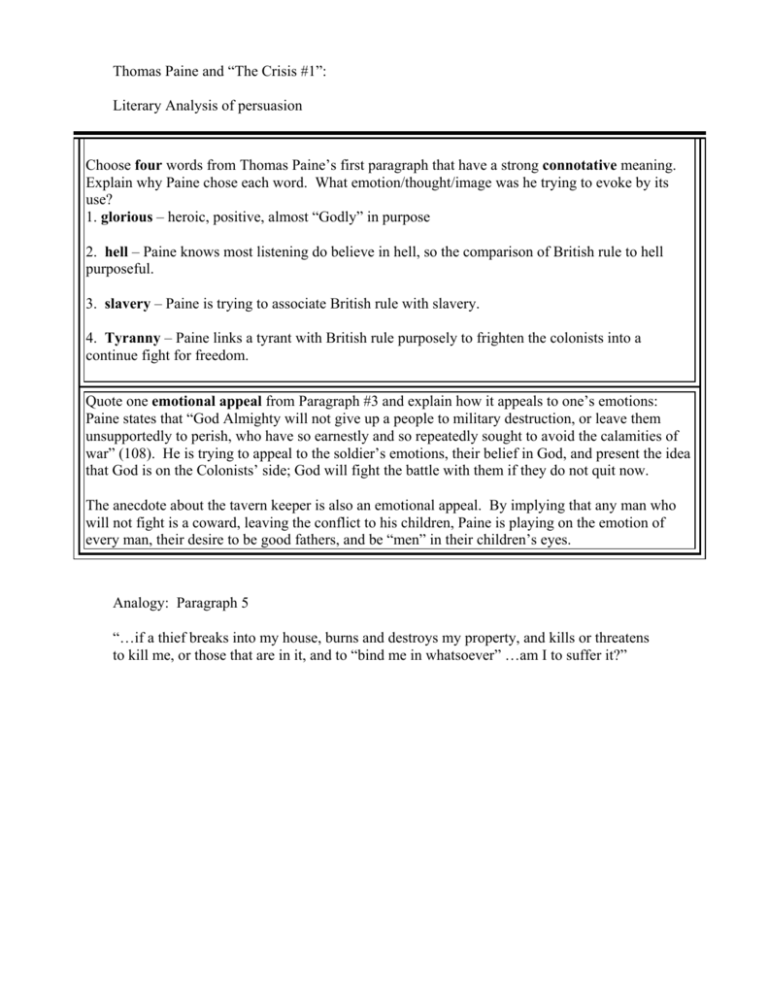
Thomas Paine and “The Crisis #1”: Literary Analysis of persuasion Choose four words from Thomas Paine’s first paragraph that have a strong connotative meaning. Explain why Paine chose each word. What emotion/thought/image was he trying to evoke by its use? 1. glorious – heroic, positive, almost “Godly” in purpose 2. hell – Paine knows most listening do believe in hell, so the comparison of British rule to hell purposeful. 3. slavery – Paine is trying to associate British rule with slavery. 4. Tyranny – Paine links a tyrant with British rule purposely to frighten the colonists into a continue fight for freedom. Quote one emotional appeal from Paragraph #3 and explain how it appeals to one’s emotions: Paine states that “God Almighty will not give up a people to military destruction, or leave them unsupportedly to perish, who have so earnestly and so repeatedly sought to avoid the calamities of war” (108). He is trying to appeal to the soldier’s emotions, their belief in God, and present the idea that God is on the Colonists’ side; God will fight the battle with them if they do not quit now. The anecdote about the tavern keeper is also an emotional appeal. By implying that any man who will not fight is a coward, leaving the conflict to his children, Paine is playing on the emotion of every man, their desire to be good fathers, and be “men” in their children’s eyes. Analogy: Paragraph 5 “…if a thief breaks into my house, burns and destroys my property, and kills or threatens to kill me, or those that are in it, and to “bind me in whatsoever” …am I to suffer it?” Quote Three Aphorisms from Paragraph #1 and explain what he means by each. 1. “What we obtain too cheap, we esteem too lightly; ‘tis dearness only that gives everything its value” (108). Something that is easy to get is not appreciated or valued, but the things we had to work very hard to get have greater meaning. 2. “The harder the conflict the more glorious the triumph.” The harder one fights to get something the more he will appreciate it. 3. “Tyranny, like hell, is not easily conquered.” Defeating the British, winning any battle, is not easy. Paragraph # 3 1. Though the flame of liberty may sometimes cease to shine, the coal can never expire” (110). Paragraph #5 1. “…better have too much force than too little, when so great an object is at stake.” 2. “The heart that feels not now is dead.” 3. “I love the man who can smile at trouble; that can gather strength from distress; and grow brave by reflection.” 4. “Tis the business of little minds to shrink; but he whose heart is firm, and whose conscience approves his conduct, will pursue his principles to the death.” 5. “Wisdom is not the purchase of a day” (paragraph 4). Paine uses an anecdote in paragraph # 3 to illustrate a point. Find the Anecdote and explain his intent/meaning in using it. A father who owned a tavern at Amboy held his son in his arms and said, “Give me peace in my day.” Paine says that the man is unfatherly because any “generous parent” would have said, “Let me fight now that my children may have peace.” Any man who does not fight now to gain freedom so that his children will not have to fight is a coward. Thomas Paine also uses two Biblical allusions. Explain his intended meaning in the use of each. In paragraph 5, Paine writes, “Say not that thousands are gone, turn out your tens of thousands” allusion to 1 Samuel 18:7 where the Bible says, “Saul hath slain his thousands, and David his ten thousands.” He also writes, “…show your faith by your works” alluding to James 2:18 which says, “Show me thy faith without works, and I will show thee my faith by my works.” Thomas Paine also uses metaphors (pgs. 108, 110 & 111). Find three, quote each here and explain their meaning . “Though the flame of liberty may sometimes cease to shine, the coal can never expire” (Paragraph 3). “The cunning of a fox is as murderous as the violence of a wolf” (Paragraph 6). Finally, Paine’s argument is not solely an emotional appeal. Locate two areas where Paine relies on logic to strengthen his opinion. Summarize his logical appeals here: Paine acknowledges that Howe, commander of the British forces, has grown stronger because the American’s did not make use of their time as they needed to. In these circumstances, why is the logical appeal a very important one for him to include?
